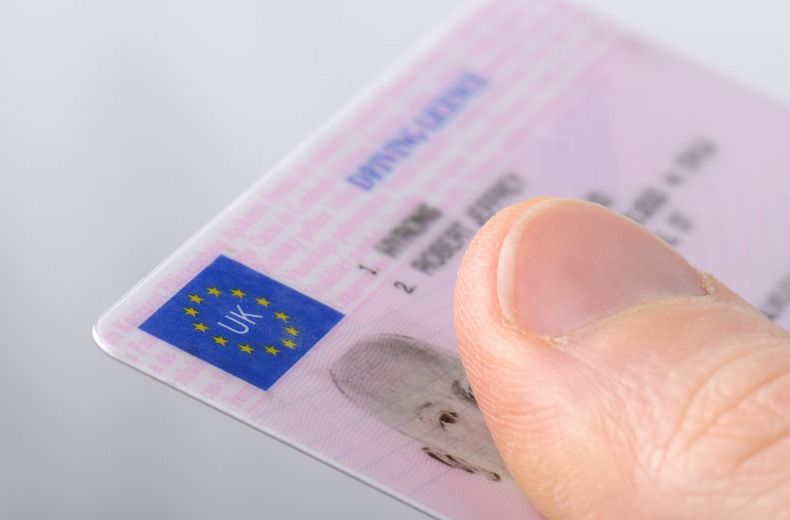A UK driving licence is valid for 10 years, but if you move then you must update it with your new address.
This know how guide looks at everything you need to know about updating the details of your driving licence.
How to change an address on a UK driving licence
Changing an address on a UK driving licence is a straightforward process. It is important to note that you can still legally drive while you are waiting for your new licence.
The first step is to visit the official DVLA website and have all the correct information to hand.
You’ll need your current driving licence details, be a legal resident of Great Britain, have the addresses for the places you have lived in the last three years, and to not be banned from driving.
It is also useful to have your driving licence number, National Insurance Number and Passport number.
Applying online
On the DVLA website, there is a four-step process to updating the details on your driving licence. You will need to update your personal details, address, driver record, security details, National Insurance, and Passport Information – in that order.
You’ll then need to go through the application process, and then a summary of all your information can be checked. Finally, you can go through the confirmation process.
It can take up to four weeks to receive your new driving licence. Drivers will also need to return their old licence to the DVLA.
Applying by post
You can also apply for a new driving licence with the new address on it via the post. You’ll need to complete a D1 form application which you can get from the DVLA.
Fill out the form with the same information you’ll need online, and send it to DVLA, Swansea, SA99 1BN.
For drivers who want to have a new photo on their licence, they will need to pay £14 send it along with the new address. This payment can be made via debit or credit card.
What are the next steps after updating your address on your driving licence?
Once you have your new driving licence, drivers will also have to update other driving-related documents.
This includes the vehicle’s logbook – otherwise known as the V5C.
If you pay for your vehicle tax by direct debit, then you will need to update this information with the DVLA.
How much does it cost to change address on driving licence
There is no charge for updating your address on your driving licence – as it is important for the DVLA to have the correct information on their database.
How to change your address on a provisional driving licence
Changing the address on your provisional driving licence is exactly the same process as it is for drivers with a full licence.
Visit the DVLA’s official website, have all the correct information to hand, enter update your personal details, new and old addresses, driver record, security details, National Insurance, and Passport Information.
You’ll then need to check and confirm all details. Following this you will need to approve.
Four weeks later, you will receive your new provisional driving licence in the post.
To prepare for the theory test, an app like Driving Theory Test UK is a great place to start, with all necessary learning materials, hazard perception clips and Highway Code info included. You can download it here:
Why change your address on your driving licence?
There are some key reasons why you should update your address on your driving licence once you have moved house.
First of all, it is a legal requirement to keep your driving documents up to date. If you do not do this, then you could face a fine.
The DVLA and the Government need to be able to send you official correspondence relating to motoring.
Your driving licence address should match the address you use for vehicle insurance. Discrepancies can lead to complications with your insurance policy, potentially invalidating it.
It can also be important if you are in an emergency situation and need to provide your details to the police.
Finally, it can also be useful outside of driving as a legal and valid proof of identification.
Risks of not updating old address
If you do not report a change of address to the DVLA, then the driver could fact a fine up to £1,000.
Can you change your address over the phone with the DVLA?
No, you cannot change the address on your driving licence over the phone to the DVLA.
It can only be done online or by post.
Risk of invalidating car insurance
Although it can change depending on your agreement with your car insurance provider, by not having a valid driving licence, it could invalidate your premium.
Insurers base the agreement on factors including your address, so having inaccurate information means that the insurer’s risk assessment isn’t valid.
This information could lead to being unable to claim following an incident.
Even after invalidating your insurance, further problems could persist in the future including higher premiums and policy cancellations.
Should students update their driving licence address?
Yes, students in the UK should update their driving licence once moving to university if they are taking their vehicle with them.
This is a legal requirement and is free to do on the DVLA website.
You can still legally drive while you are waiting for your new driving licence.

Breakdown cover that’s cheaper than AA – from £5.49 for Roadside!*
Complete peace of mind for less
• Cheaper than AA Price Guarantee^
• We get to most breakdowns in 60 mins or less
• Our patrols fix 4/5 breakdowns on the spot













